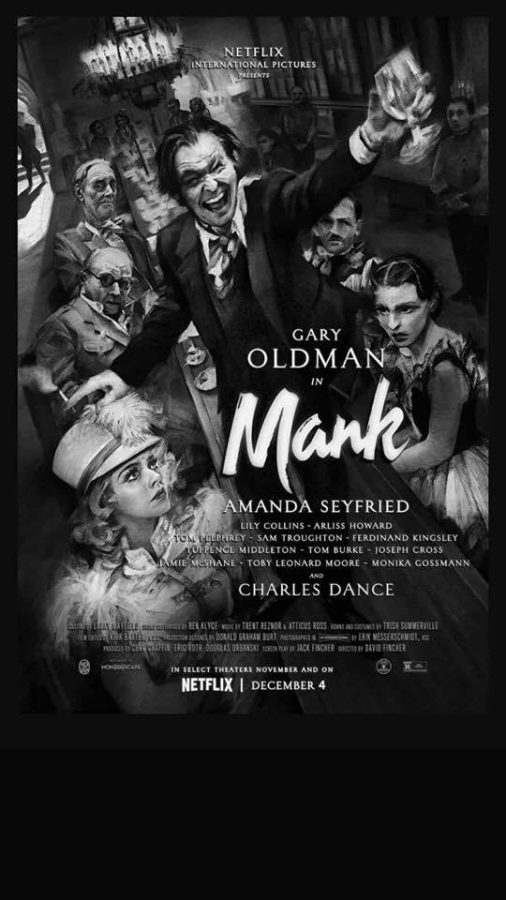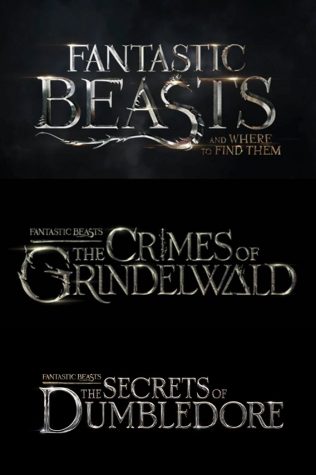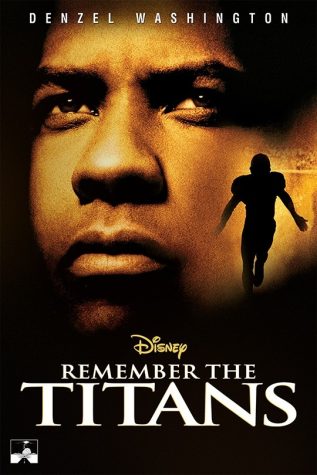REVIEW: ‘Mank’
Before I begin this review, there is something I must bring to light for all my readers. This film is not for everyone! If you are a casual moviegoer, you will probably be bored by this flick; but if you are a lover of all things film-related, a movie buff, a film connoisseur, an all-out film junkie (you get the point), then this film is more for you. You have been warned!
“Mank” comes to us from the legend himself, David Fincher, director, writer and producer of some of the greatest films of all time (“Se7en,” “Fight Club,” “Gone Girl,” and “Zodiac” to name a few). This time around, he has tasked himself with telling the true story of another legendary film icon, Herman J. Mankiewicz (or “Mank” for short, hence the title), and his race against time to finish the script for the world renowned film, “Citizen Kane.”
It also reflects on his years spent with the writers guild in the late 1930s. Wearing the acting shoes are Gary Oldman as Mank himself, with co-stars Amanda Seyfried as Marion Davies, Lily Collins as Rita Alexander and Charles Dance as newspaper publisher and businessman William Randolph Hearst.
From all of these actors comes a film that houses great performances all around. Oldman once again turns in another electrifying performance with his portrayal of Mank. He does such a great job of playing the alcoholic writer and manages to not overdo it when it comes to the scenes when Mank is intoxicated.
It all feels natural and it makes for some greatly acted scenes. As for the rest of the cast, everyone did really well. While they all don’t quite match up to Oldman’s stellar performance, I was quite pleased with everyone, in particular, Dance.
As for Seyfried, while she did play her role swimmingly, she wasn’t in this film for very long. Her character was quite underdeveloped and minimally featured. I was a little underwhelmed … which is a shame, due to all the hype that surrounds Seyfried during this award season. Overall, her performance wasn’t enough to make me say “oh she absolutely deserved this nomination,” because it wasn’t anything seriously groundbreaking.
I’m not totally upset that she was nominated for a Golden Globe, as she is a terrific actress. But I definitely think that the best actress nomination this year should have gone to a supporting actress from a different movie who played more of a prominent role.
But let’s get to what the actual best part of this film truly is: how it looks and sounds. In terms of sound, audio and framing, this film is aesthetically perfect in every way. Fincher apparently shot this entire film on Helium Monochrome 8K cameras, with monaural sound mixing for sound systems. If you do not know what this means, this is the kind of equipment that was used to film movies back in the era in which this film takes place, making it feel like you are watching a movie straight out of the 1930s.
On the technical side, Fincher and his team did a marvelous job, and this film (come the Oscars) will most definitely be nominated for best sound editing and mixing. I predict it will win for these categories.
Now, as for the narrative side, this film is not as chock full of gripping storytelling as you might think (as many critics have stated already). And I agree this film is not narratively strong,
I disagree that it doesn’t feel important to watch. I strongly believe that this film does hold a purpose. It shows the politics of the many aspects of film-making, and what went down behind the scenes within the writers guild, to whom many in the film industry owe a lot despite many of the guild members being creeps, (which is a story for another time).
Throughout the film, we see Mank interacting with the greats, like Mayer (of Metro-Goldwyn-Mayer Studios), Kaufman (famous American playwright), and Hearst, and all the politics they were wrapped up in pertaining to the movie industry as well as their influence in the actual political world.
These sequences act as a reminder that even in the film industry, there will still be politics, and this film explores that captivatingly. Overall, it was nice to see the greats portrayed so well on screen, as well as seeing their interactions while discussing what to do in order to ensure the film industry could progress forward, even in the Great Depression.
As I previously stated, this film is not for everyone. Many casual filmgoers in search of light entertainment will most likely lose interest quickly. However, if you are looking to dip your toes into other waters and are a true film lover, I recommend this film. It is a fascinating (albeit a bit fabricated) look at one of the greatest screenwriters of all time making one of the greatest films of all time, and the behind-the-scenes politics that go along with it.
Jury Declares: B










